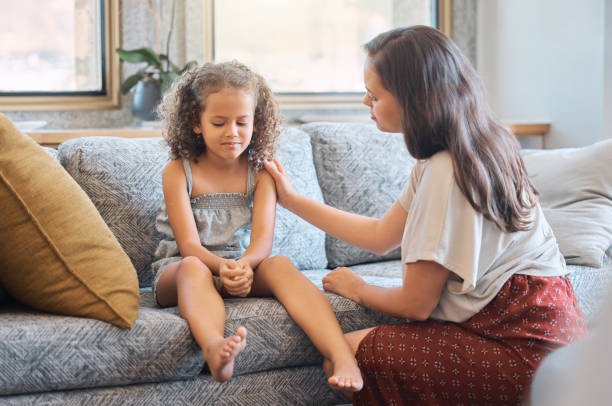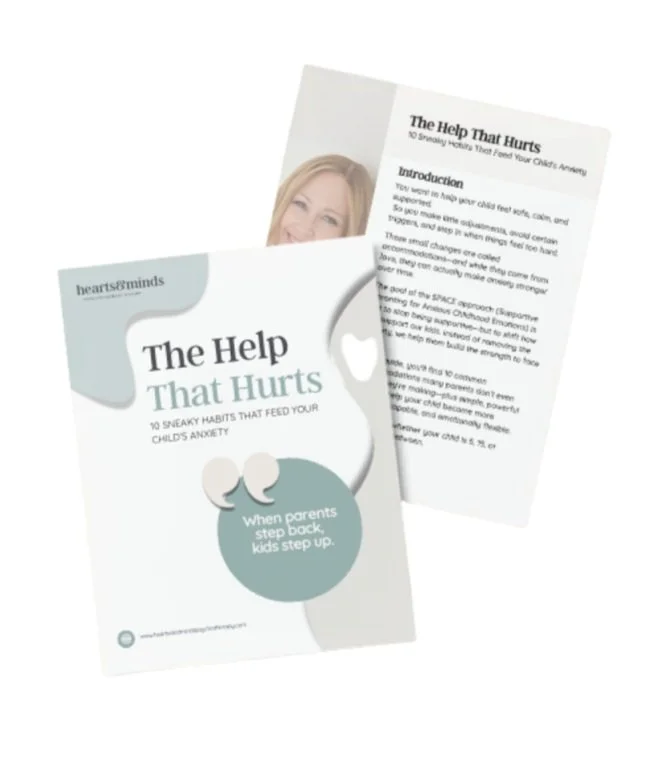Is Summer Freedom Making Your Anxious Child Feel Less Free?
As a parent, your deepest instinct is to protect your child from distress. And when summer rolls in—with its bright skies, popsicles, and pool days—it brings a fresh batch of both magic and meltdowns.
Suddenly, there’s camp drop-off and new social groups to navigate. Sleepovers, fireworks, unfamiliar routines. Even something as seemingly simple as jumping into the deep end can spark spirals of “what if” questions: What if I sink? What if I don’t know anyone? What if I get homesick?
Your instinct is to help them feel safe. Maybe you offer constant reassurance, answer every anxious question with extra patience, or agree to skip the BBQ, the pool party, or the overnight trip. Maybe you keep tight to your usual routines—even when the season invites spontaneity.
And all of that makes sense. Summer feels like it should be easier. You just want your child to feel relaxed and happy.
But what if some of those loving efforts to reduce their anxiety are actually helping it grow?
What if avoiding that pool party sends the message: You really can’t handle this?
Or answering every "what if" teaches the brain: There really is danger here?
It’s not about ignoring their fear. It’s about helping them build the courage to face it.
Because summer can be a season of growth, too. Not just for tomato plants and sunflowers—but for brave kids, sensitive nervous systems, and steady confidence.
The Accommodation Trap
But what if—without meaning to—some of the ways we try to soothe actually keep our kids stuck?
When we allow our child to avoid the thing they fear, or jump in with answers to every anxious “what if,” we may be reinforcing the idea that the world is too scary, and they can’t handle hard things.
Not because we don’t believe in them—but because we love them. Because we’d rather see them smiling on the sidelines than overwhelmed in the middle of the field.
These small adjustments we make as parents are called "accommodations" - and while they come from a place of love, they can unintentionally strengthen anxiety's grip over time.
Think about these common scenarios:
Letting your child stay home when the thought of camp feels too scary
Reassuring them over and over when the “what ifs” about swim lessons or sleepaway camp won’t stop
Steering clear of conversations about changes in routine, upcoming travel, or anything that might upset them
Canceling beach days, BBQs, or family outings when your child melts down or refuses to go
Why Accommodations Backfire
When we constantly remove obstacles from our children's path, we're inadvertently sending a powerful message: "You can't handle this on your own."
As Dr. Eli Lebowitz, developer of the SPACE approach (Supportive Parenting for Anxious Childhood Emotions), explains:
"Accommodation is helpful when it teaches your child the valuable lesson that she is able to cope with feeling anxious. Accommodation is unhelpful when it reinforces your child's belief that she cannot cope with anxiety and must avoid situations that are likely to trigger it."
Small Shifts, Big Impact
The good news? You don't need to stop being supportive - you just need to shift HOW you support your child. Instead of removing the anxiety trigger, you can help build their strength to face it.
Try replacing these common phrases:
Instead of: "Don't worry, you can stay home today."
Try: "I understand you're feeling worried. You can go to school even when you're anxious. I'll be thinking of you and cheering you on."
Instead of: Answering the same worry questions repeatedly
Try: "You've asked that a few times—it sounds like your brain's feeling stuck. I know you're worried, and I believe you can handle what comes."
Instead of: Avoiding difficult topics
Try: "This is something important to talk about. It might feel uncomfortable, but we can do hard conversations together."
When Parents Step Back, Kids Step Up
Reducing accommodations doesn't mean reducing support. You can still validate feelings, provide love and connection, and be their safe base. But by gradually stepping back from "fixing" their anxiety triggers, you allow your child the opportunity to discover their own strength and resilience.
Remember that this is a process - progress might be slow and there may be setbacks along the way. The goal isn't perfection, but helping your child develop the emotional muscles they need to face life's inevitable challenges.
And summer offers something else too: low-stakes chances to practice bravery.
To feel nervous and go anyway.
To mess up and
recover.
To get through it—and realize they’re stronger than their anxiety lets on
For a deeper look at common accommodations and practical alternatives to try, make sure to download our complete guide.
-
Stay tuned for more information about our upcoming parenting course designed especially for parents of anxious kids!



